#Translate English to Chinese
Text
Epic Translations: Effortless English to Chinese Communication
In today's global landscape, the ability to translate English to Chinese has become increasingly vital for businesses and individuals alike. Whether for expanding into the Chinese market, engaging with Chinese-speaking audiences, or fostering cross-cultural communication, having accurate and reliable translation services is essential. Enter Epic Translations, a leading service that makes this process seamless.
Translate English to Chinese requires more than just converting words; it demands a deep understanding of cultural nuances, idiomatic expressions, and contextual relevance. Epic Translations excels at this, offering top-notch services that go beyond literal translation. By prioritizing clarity and precision, they ensure that every translation is not only linguistically correct but also culturally appropriate.

The team at Epic Translations consists of skilled linguists who specialize in translating English to Chinese across various industries, including legal, medical, technical, and marketing fields. Their expertise ensures that every document, whether a contract, product manual, or advertisement, conveys the intended message accurately.
What sets Epic Translations apart is their commitment to delivering high-quality translations quickly and efficiently. With advanced tools and a deep pool of professional translators, they can handle projects of any size without compromising on quality. Their services are designed to help clients succeed in the Chinese market, bridging the language gap effectively.
In a world where language barriers can hinder progress, Epic Translations offers the perfect solution for those looking to translate English to Chinese with precision and confidence.
#english to spanish translations#english to italian#translate english to arabic#Translate English to Chinese#business translation service
0 notes
Text

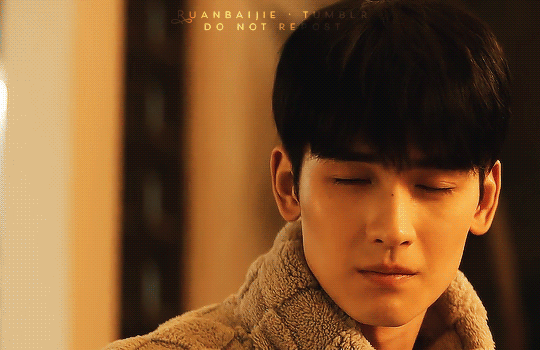
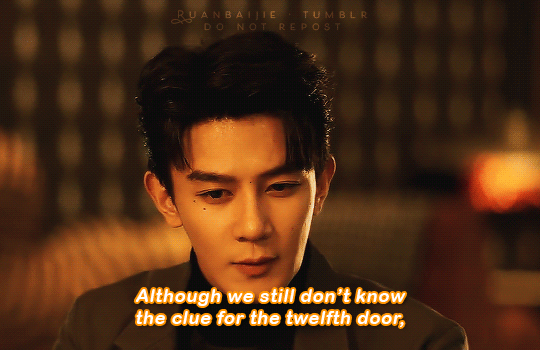



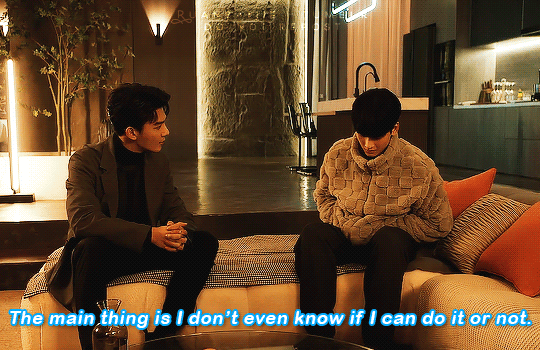

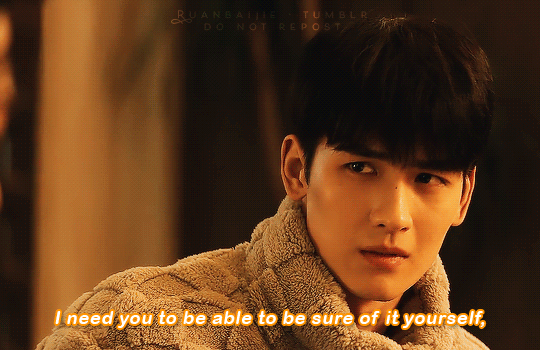
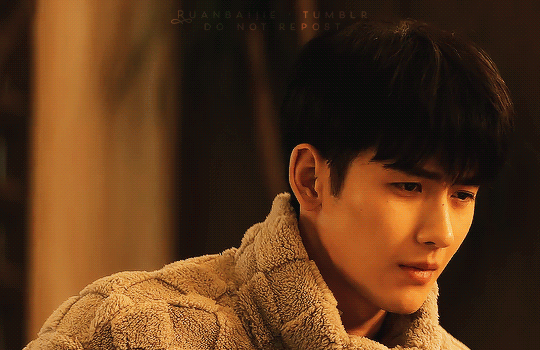
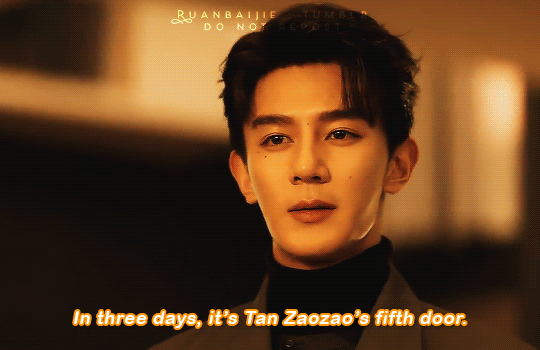




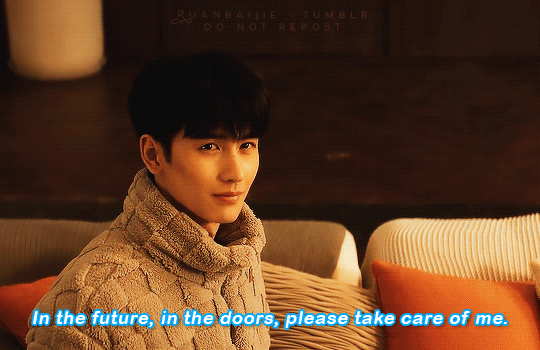
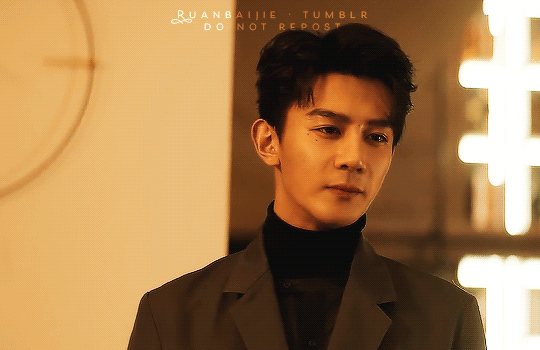

哎。我现在就能回答你。我愿意。
THE SPIREALM 致命游戏 (2024) 1.39
adapted from the danmei novel Kaleidoscope of Death 死亡万花筒 by Xi Zi Xu 西子绪
#userdramas#asiandramanet#cdramaedit#cdramasource#致命游戏#死亡万花筒#the spirealm#thespirealmedit#kodedit#kaleidoscope of death#asianlgbtqdramas#danmeiedit#danmei#*gifs#xia zhiguang#huang junjie#userinahochi#userkimchi#tuserjade#seamayweed#i know i've giffed the last part of this scene before but#this entire thing lives in my head RENT FREE#also did i purposely translate rnz's qn so that lingling would reply 'i do' in english as he did in chinese#yes#yes i did#this was a marriage proposal and i'm not taking alternate explanations
173 notes
·
View notes
Text

Poster of My Stand-In EP.11 - Love is Merely Madness
Producer Yuan tweeted that the English tagline took inspiration from Shakespeare's As You Like It
Love is merely a madness; and, I tell you, deserves as well a dark house and a whip as madmen do; and the reason why they are not so punish'd and cured is that the lunacy is so ordinary that the whippers are in love too.
The Chinese tagline is "有美人兮,见之不忘" which can be translated as "There is a beautiful person, I will never forget them after seeing them"
Producer Yuan explained that this Chinese tagline comes from an ancient Chinese poem and she feels that it describes the visible yearning and longing Ming has for Joe in EP.11
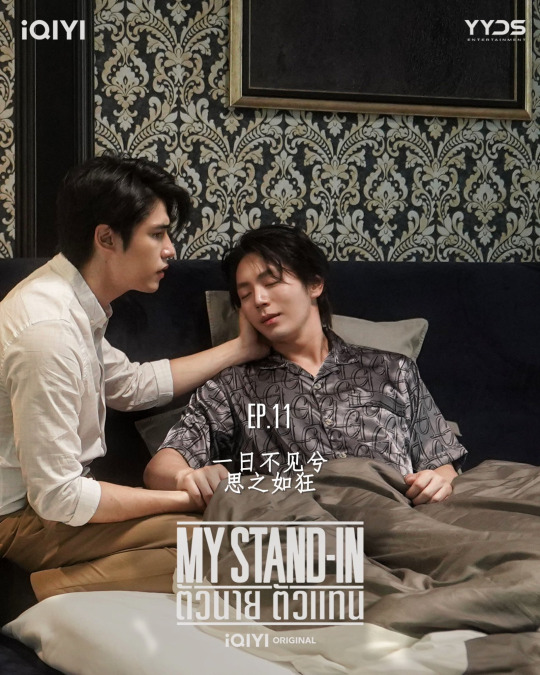
#yyds entertainment#my stand in#my stand in the series#i've seen a few interviews with yuan where she spoke chinese too. i love the fact that she read the novel in chinese#which probably meant she got all the nuanced that english translation of pbd lost in the process#i need danmei adaptation rights to fall into hands like herrrrrrr
111 notes
·
View notes
Text

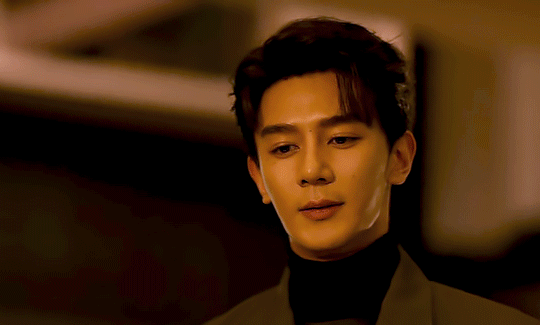
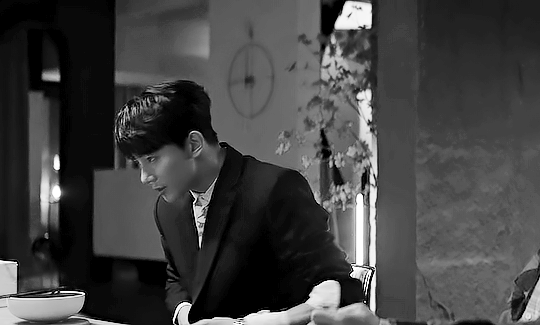
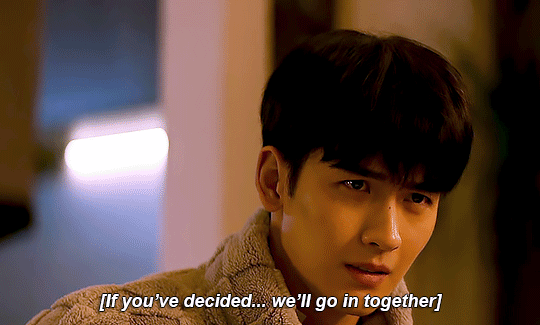

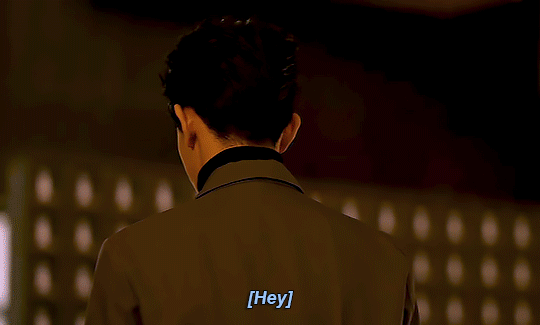



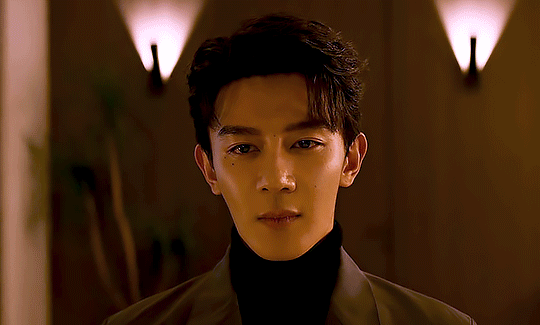
The Spirealm 致命游戏 (2024) | Eps. 8 + 39
#the spirealm#致命游戏#kaleidoscope of death#ruan nanzhu#lin qiushi#ling jiushi#xia zhiguang#huang junjie#cdrama#cdramasource#kodedit#userhanyi#*gifs:mine#i'm gonna fucking cry#the flippancy of the first answer vs. the care and weight of the second#the framing where both times nanzhu is facing away from lingling when he gives him his answer#nanzhu's look of disappointment in the first vs. wonder and almost reluctance to believe what he just heard in the second#he doesn't even dare to turn around#SOMEBODY HELP ME i am not well#translation notes: the second answer from lingling is “我愿意” which means “i'm willing” or “i'll do it”#notably “我愿意” is also the traditional marriage vow in chinese - the equivalent of the english “i do” at the altar SLDJFSLJFSLDJFLSDJF#anyway xia zhiguang's microexpressions ughhhhhh they hurt me
141 notes
·
View notes
Text
i just posted but i feel INSANE hua cheng’s entire appearance in the ghost groom arc is just symbolism.
when xie lian is alone (having sent everyone away, in danger but perfectly capable of fighting his way out), hua cheng steps in front of xie lian, offers his hand, and guides xie lian through the woods to where he needs to be. monsters cower before him, magical barriers don’t stop him, he steps on the skulls of enemies and crushes them so thoroughly that xie lian behind him feels like he is walking on flat ground. he doesn’t just swoop in without asking — he offers his hand, and waits, and xie lian willingly reaches out and lets himself be guided. and his grip is featherlight, even as he steers xie lian through danger and darkness. his blood rain warns away all who would dare harm them, but xie lian doesn’t get hit by a drop. and hua cheng does this all in his true form, not in disguise, because he’s not playing a character or trying to achieve anything, this is just him. despite not being confident enough to face xie lian directly, hua cheng has already shown him exactly who he is.
(now excuse me while i gnaw through an entire wall because how was this not glaringly obvious to me all along)
#tgcf#tgcf meta#hua cheng#my hyperfixation demon#hualian#kinda ig#rereading tgcf#goddd#writing this post was a fucking EXERCISE in pronouns#but also. augh. stuff that i think. the translation doesn’t get across.#i checked the eng translation and i think. the english gets preoccupied with the descriptions#and doesn’t get across the very. symbolic atmosphere of the whole thing. for me anyway#like when you’re performing a ritual and you can feel the meaning soaked into every gesture. it hit me when i was reading the chinese#something something orpheus and eurydice. hey. hey that’s a thought.#stuffs that into the back
530 notes
·
View notes
Text


og if you want it. Idk. Know how to read it. Wtv.
#not really a meme? i just translated it#twflpokespe#pokemon#pokespe#og is from 886 on. uh. weixin??? idk i dont have it and i dont know the english name#their username is in the post#oh yeah the last panel isn’t too exact but it sounds weird without punctuation#in english. in chinese it just doesn’t have punctuation and sounds very normal#i stole this from kiri’s instagram story and thought id share lol#pokemon special#pokespe meme#reguri#trainer red#trainer blue#trainer green#rival green#rival blue#originalshipping#namelessshipping#gurire#uhhrhgg what else#レグリ#グリレ
82 notes
·
View notes
Text
I just realized that, if I ever transmigrate into any novel/manga I’ve read, I’d be doomed because they’re all from different countries with different languages…
#transmigration#isekai#tgcf#svsss#tbhk#ohshc#though ohshc and tbhk might be fine because they’d probably have an English transfer program or something#unless I go in a character that already exists#idk#solo leveling#return of the blossoming blade#danmei#manhwa#xianxia#chinese#korean#japanese#maybe I could survive the Chinese ones…#definitely not the Korean or Japanese ones#I didn’t put orv because they have a translation system#(thank god)#did solo leveling have one of those?#I don’t remember#it’s been a while since I read it#I actually don’t remember what it’s about lol
105 notes
·
View notes
Text








Tian Bao Fuyao Lu - 天宝伏妖录 (Legend of Exorcism)
#I made too many gifs in a post again :D#legend of exorcism#tian bao fuyao lu#天宝伏妖录#donghuaedit#chinese animation#fei tian ye xiang#kong hongjun#li jinglong#I know that 3 people know this animation and the book but I hope more people will :)#my gif#danmei#I made this because I'm happy the book will get an official english translation ^^#danmeiedit
58 notes
·
View notes
Text
八卦 Bagua, 五行 Wuxing (five elements) within LBFAD
As I was writing the post for the historical China omegaverse and how 八卦Bagua comes into play. I haven't seen mentions of Bagua within LBFAD. There's a common misconception that Xun Feng's full name is Dong Fang Xun Feng. Even Wikipedia and MDL have it written that way. However, in the Chinese credits, it's simply "Xun Feng" with no surname, "Xun" is not his surname either. The name actually references Bagua (eight trigrams).
'巽xun' is one of the eight trigrams which symbol is the wind, and wind in Chinese is "feng", hence his name Xun Feng. Xun is associated with southwest - not relevant to east(dong fang).
Xun gua element: Wood
Xun gua symbol: Wind

While Dongfang is a compound surname in China. Dong Fang Qing Cang's surname is not Dongfang. Screenshot below taken from Baidu.
["Dongfang" is not a surname, his full name has no surname, nickname is "Daqiang".]

Although his name is not directly a reference to a gua, I'm taking a wild guess that "Dong Fang" refers to the position "east", which corresponds to '震 (Zhen)' in the trigram, whose symbol is thunder. This aligns with his thunder powers.
Zhen gua element: Wood
Zhen gua symbol: Thunder
Even though both are wood elements, in the context of 五行(wuxing, five elements). They represent different aspects of the wood element. Zhen reflects the explosive, initiating energy of wood, like a tree bursting forth in spring or a thunderstorm bringing new life. Xun embodies the more subtle, pervasive influence of wood, akin to the wind that shapes landscapes over time or the steady growth of trees.
I'm not sure if any of this was intentional on the author's part, but it all aligns with their personalities. Their element being wood also ties in with the speculation that DFQC's true form is a tree or plant of some sort.

#love between fairy and devil#cang lan jue#苍兰诀#chinese stuff#xun feng#dong fang qing cang#*4#i might tripping with the dfcq part but xun feng's name is definitely a reference to bagua#...and now that I think about it none of the characters have surnames 😂#this was even harder to write up than the other post i have never read yijing nor do i think i have the chinese capacity to understand it#the reading up was tough trying to understand it in chinese first then translating it to english
34 notes
·
View notes
Text
Localization: Tartaglia’s Title & In-Game Self Introduction
I feel that Tartaglia’s codename as a harbinger, “公子” (gong1zi3), is better translated to “Young Master” rather than “Childe” since the former is more easily understood and blends in with Liyue culture (more on that shortly). Does the English word “Childe” sound like a title or a name to the average player I wonder? Even though the title “childe” refers to “an archaic English word that refers to the son of a nobleman who has not yet attained knighthood” or so the etymology section on his wiki page says.
And I believe the name Tartaglia comes from the stock character in traditional Italian theatre, commedia dell’arte. Please correct me if I’m wrong, but “Tartaglia” translates to “the stutterer”, I think? I’m not familiar with Italian culture; I wonder if the stock character has any relations to being a childe.
The Chinese term 公子 understandably comes up often in Chinese 武侠/wuxia (Chinese martial arts) and 仙侠/xianxia (spiritual cultivation, fantasy with gods/immortals/etc) genres, so if Tartaglia really wanted to blend in with Liyue… I mean, if his title was “Young Master” then it wouldn’t be suspicious if in Liyue you hear someone be referred to as “Young Master”. It could be Xingqiu for all they know. Of course in the game the word “childe” is pronounced (?) like “child” but if said “child” sounds like a young man, wouldn’t the facade be broken easily…?
Zhongli and Traveler calling him 公子 all the time wouldn’t rouse suspicion if in English it’s just “Young Master”. “Young Master did this. Young Master was at that place,” sort of feel.
More importantly, his introduction:
Edit: Final line can be better translated as “Things like names are really just aliases” for a casual tone more fitting to the original
.
(Original Chinese)
???:你们可以叫我「公子」喔。
派蒙:哇…性格好糟糕,救过我们一次就把我们当仆人?
公子:哈哈,我没有那个意思。「名字」这种东西啊,只是代号而已。
.
(Official English Localization)
???: Call me Childe.
Paimon: Childe? What, so we're supposed to dote on you?
Childe: Haha, no no, not at all. It's an alias of sorts.
.
(Actual English Translation)
???: You can just call me “Young Master”.
Paimon: What kind of attitude is this?* You saved us once and now you’re treating us like servants?
Young Master: Haha, that’s not what I meant.** Things like “names”… are just aliases.***
.
* T/N: literally, “Wow, what a terrible personality you’ve got.”
**T/N: literally, “Haha, I don’t have such intentions”
***T/N: literally, “codenames”
#dusk analysis#Genshin translation#translation#Tartaglia#Childe#公子#达达利亚#原神#genshin impact#English translation#chinese culture#commedia dell'arte
207 notes
·
View notes
Text

Translate English to Chinese | EPIC translations
#Translate English to Chinese#translation services#document translation service#website localization service#certified document translation services
0 notes
Text
Whenever I see danmei discourse reliant on translations, especially where translator interpretations differ, it's so clear that a lot of English-speaking danmei fans truly believe, consciously or unconsciously, that translation is a plug-and-play, one-for-one prospect - that languages are interchangeable and there is an Exact One True Translation that the Perfect Translator will be able to unearth and provide to the masses that ideally encapsulates the original using accurate words.
I suspect this is a venn diagram in the shape of a circle with people who are English monolingual.
I also suspect this is a venn diagram in the shape of a circle with people who think their own interpretation of a text is Truth instead of one possible reading.
Like, even when we read a book in the language it was originally in, there isn't only one true meaning - different people will interpret it differently.
That is magnified when we can only access the text via translation - translation can never be a perfect art because languages aren't one-for-one and English doesn't have words or phrases for every concept in every other language (no two languages do!) and translators have to take what's in the original, interpret it as best they can through their own lens, then convert that into another language while trying to preserve the meaning, the intent, the nuance, the lyricism, and give the secondary language reader something readable, polished, and eloquent.
It cannot be done perfectly.
Having access to multiple translations that differ is a strength, not a weakness - a window into the nuance that is lost in any one translation, a glimpse at how complex and beautiful the original language is.
But there will never be One True Translation, anymore than there will ever be One True Interpretation. That's. That's not how books work.
I am begging English-speaking danmei fans to wrap theirs heads around this, and maybe attempt to study even a little Chinese before opening their mouths about the translation aspect of these books.
If I never see another "I plugged the hanzi of this characters name into a machine translator and they literally mean this hahaha" post again it'll be too soon. If I never see another "this version of the translation is Wrong I will use the version that narrowly supports my personal interpretation" post again it will be too soon. Like. Uggggh.
(This wasn't prompted by anything I saw recently/today it's just a constant low-level annoyance.)
#unforth rambles#and this is why ive been studying chinese for three years#i just want to get to the source and be able to interpret it for myself#but the vast majority of people in english fandom seem to have zero interest in learning chinese#its baffling to me tbh#to see the same people quibbling over translation have zero understanding of how translation works#and zero interest in learning the language so they dont have to rely on translation
36 notes
·
View notes
Text

妖族七大圣 Seven Great Sages of Yao Kind
[ID: A character line-up of the Seven Great Sages, left-to-right by seniority status and accompanied by their king title in seal script. They are all dressed in varying levels of armor in an overall red-orange-yellow color palette. Bull Demon King has one hand on his hip and the other hand holding half of a skull with two fingers up like a wine bowl. Jiao Demon King has one hand on his hip with the other on the hilt of his sword. Peng Demon King is standing, wings not folded but not outstretched, with his hands in mudra positions. Lion-Camel King is smiling with his eyes closed, one paw hooked onto his belt and the other resting within his off-the-shoulder outer shirt. Macaque King is standing with hook swords in each of his hands. Golden Snub-nosed King is leaning against a wolf's teeth staff. Sun Wukong is standing, arm slightly up and head tilted down, his staff held behind him. End ID]
#my art#journey to the west#jttw#xiyouji#sun wukong#monkey king#character design#hanfu#visual development#bull demon king#jiao demon king#peng demon king#lion-camel king#macaque king#golden snub-nosed king#JUST FYI my jiao demon king macaque king and golden snub-nosed king are all girls#king was a gender neutral title and ancient chinese used the same pronoun for everyone (他 or 佢 depending on region)#using he/him for them in english because that gn pronoun is now translated as he/him and also They Are Butch Icons#ourgh i was gonna post this alongside Erlang Shen's Seven Sages too but alas his is not getting done anytime soon#but it will come eventually#also i knoWWW they did seniority by how physically big they were isnt of their actual senioritiy#but you cant give me a dragon and expect me to not make them tall and lanky#so im gonna say their humanoid forms are not reflective and that Bull Demon's bull form is bigger than Jiao Demon's dragon form
540 notes
·
View notes
Text
Thousand Autumns English Volume Covers 1-5 Are Now Complete!
Thousand Autumns (Qian Qiu) have officially been taken and published by Seven Seas Publishing. Take a look, the volumes are all now complete. Special edition of the last volume (5th volume) are also available with limited supplies to pre-order.
They're so beautiful and I can't wait to stuff them all up in my bookshelves🥺❤
The arts were done so beautifully by Mimo.
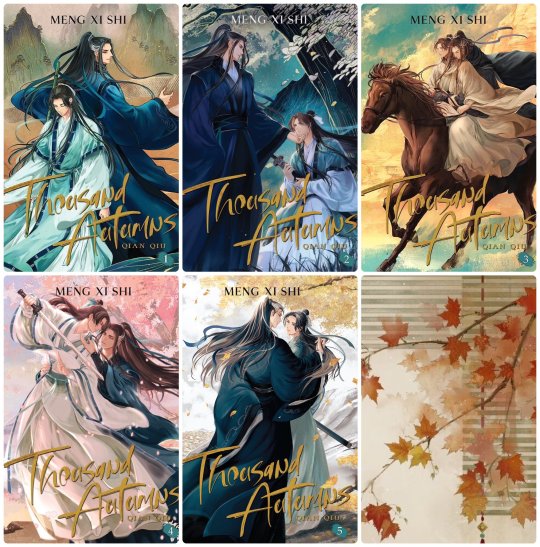
The drastic change in the fifth volume compared starting from the beginning of the first volume is 😔💖
They're really closing the final curtain with the season autumn💛💛
Spring-Summer-Autumn-Winter; In the end, who can still remain eternal?

Look at the symbols on the side of the books! <3
Vol. 1: Shen Qiao's Bamboo pole
Vol. 2: Scroll (Zhuyang Ce)
Vol. 3: Ah-Qiao Tangren
Vol. 4: Shan He Tong Bei Sword
Vol. 5: Banbu Peak (Xuandu Mountain)
It's all related to our beloved protagonist Shen Qiao.
Please read Qianqiu if you haven't! Let's support the authors too by buying the official books if you can.
#千秋#qianqiu#thousand autumns#yan wushi#shen qiao#yanshen#meng xi shi#text post#english translation#chinese novel#book cover#cover#digital art
58 notes
·
View notes
Text
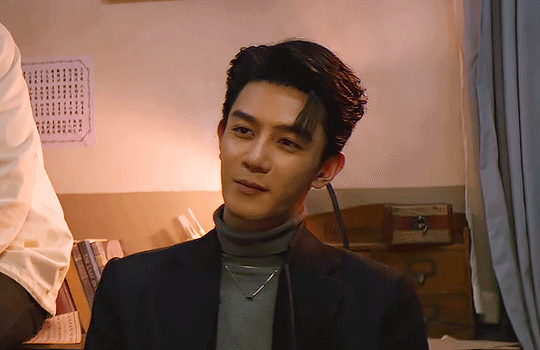

+ bonus Lingling honest reaction:
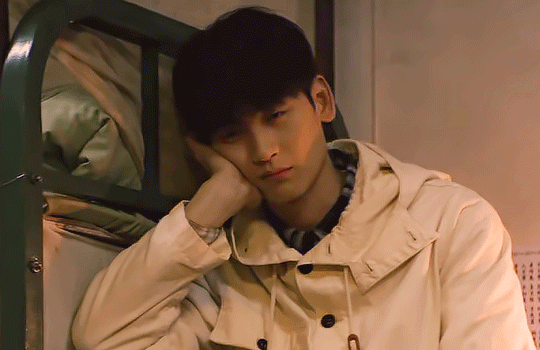
My judgement is right after all. If her brother is like this, then Baijie must be even kinder and more compassionate than you.
The Spirealm 致命游戏 (2024) | Ep. 27
#the spirealm#致命游戏#kaleidoscope of death#ruan nanzhu#ling jiushi#li dongyuan#xia zhiguang#huang junjie#liu xiaobei#cdrama#cdramasource#kodedit#userhanyi#*gifs:mine#huge fan of whatever is going on between these three QUITE HONESTLY#the way lingling's caught somewhere between slightly amused and absolutely disgusted with them#translation notes: in chinese nanzhu actually says “your little mouth is so sweet” but it basically means you're a sweet talker#it is also a lot less sexually charged in chinese than the literal translation is in english lol#i've given up on coloring i'm just replacing the garish yellow filter with a slightly less garish red one
144 notes
·
View notes
Text
[Book Rec + Reaction/Thoughts] The Lantern and the Night Moths 灯与夜蛾 by Yilin Wang
An anthology of translated poems by five modern or contemporary poets and accompanying essays by the translator, @yilinwriter.
You can find the pronunciation guide and list of corrections here!
The cover art, a beautiful expression of the tone of this collection, is by Taiwanese artist Ciaoyin (check out her gorgeous insta!). I'm looking forward to the arrival of the physical book as my tab absolutely does not do it justice xD

Anyway! The official release date is 02 April 2024 though there have been some very thoughtful reviews by early readers already. Here, here, here and here.
(It was an ARC that I received too… though in the time it took to put this together, the ebooks have already gone out to readers >.< typical snail yj!)
Instead, I’ll tell you who I think would be interested in this book or might benefit from reading it, then share things that are cool about it from the perspective of a bilingual hobbyist translator + lover of ancient poetry and lyrics.
Who should read it?
If annotations, translator’s notes and reflections spark joy for you...
If you’ve ever read poetry translations and been intensely curious about what goes on under the hood...
If you’re a translator yourself wanting to hear another voice...
Definitely check this out!
Also if you’re CN+EN bilingual and have ever read something in English that references Chinese terms and concepts etc. except ONLY in English, pinyin or wade-giles and been utterly frustrated by the ensuing guessing game (like me) Fear Not.
That will not be a problem here.
I really appreciate how Chinese words are used naturally where needed for concepts and quotes - they are also translated for those who can't read Chinese so no one is left out. It made this book of and about translation (and more) super comfortable to read! The solution is so simple, so direct, so rarely used that I am amused.
Oh, but do note that the Chinese characters are in simplified though!
The poems are organised by their writers who are listed here by order of birth year, not appearance in the book:
秋瑾 (Qiu Jin, 1875 to 1907)
废名 (Fei Ming. 1901 to 1967)
戴望舒 (Dai Wangshu, 1905 to 1950)
小西 (Xiao Xi, 1974 to _)
张巧慧 (Zhang Qiaohui, 1978 to _)
Altogether, that covers nearly the last 150 years up to now. I’ve never really been into poetry by poets in such relatively recent times, in part because I’d been holding on to this stereotype of them spurning Classical Chinese and ancient poetry in the first half of the 20th century (not entirely true, as I came to realise xD). It made sense and was understandable, but felt sad.
Yet am I the target audience for this book?
Very much so.
In ways I didn’t think I would be too! It was so much fun to experience this both as a reader and a translator that I thought I’d share it here, where we are appreciating Chinese poetry together.
If you didn’t think you’d enjoy modern Chinese poetry, hey, give it a chance!
Oh yeah - on the way home a while back, I was talking to a friend about translation and was surprised to hear that her impression was that it ought to be a straightforward process. Like isn’t it a 1:1 conversion? At some point, ‘what’s the difference between something google translate might return, and how you would say it?’ was asked, and oh that was a delightful question to my ears! I showed her one of my comparison sheets where an original text is laid out alongside multiple translations line-by-line, briefly explaining some common and unique choices and how the people who had translated those probably arrived at the various interpretations. She was pretty amazed to see that the answer to her question was: very different. Hey, it’s a complicated process!
But there’s only so much one can explain in the space of a train ride. That’s why The Lantern and the Night Moths is a book I would also rec to someone like this friend of mine - open minded and curious but never having the chance to think about or encounter the craft of translation.
Like Yilin says, ‘the meaning of a word cannot be fully expressed in one single translation, nor through a series of translation attempts’. She then explains why with great attention to detail and some solid examples from one of the poems with word choices loaded with subtle connotations :D
What's interesting about it?
Okay, for one, Yilin shared a playlist of music that she listened to while working on this book. Here is the link to the spotify one and the one on youtube. Check them out! They sure put me in the mood to read xD (favs: 别知己, 小神仙 & 去有風的地方) Afterwards, this made so much sense like - ah! an audio moodboard.
She's also putting together these adorable mini profiles of each poet along with a cmedia and tea rec to match their vibes. Go see them on her instagram xD
Now to business...
structure
What really helped keep the reader’s focus was the way each section is organized, how the poems and accompanying essay were presented and finally the short bio of each person right at the end.
The poets are first introduced through five or six of their poems, works well suited to this purpose. Their voices, distinct through the vision, ambition and emotion of their words, are brought across by Yilin’s sensitive, thoughtful and poetic translations into English. These translations were also creative and transformative in a way that made so much sense after reading one of her reflections on the process, how she ‘must guide it with gentle hands to ensure its spirit is kept alive and intact during this transformative, and often excruciating process’. A rebirth into another language!
Personally, I’ve come to think of reading translations as looking at a work through another’s eyes. So it’s delightful when the translator’s presence is discernible, and even more so when the reader is given insight into their intention and process via commentary.
Yilin’s essays coupled with the poets’ bios at the end provide a means to go back and appreciate their works in context of their circumstance and inspirations. Similarly, to read the translations with a changed perspective.
I don’t know how much of a thing this is with translated poetry anthologies in English - can count the number I’ve read with both hands lol, and they’re all of the ancient chinese poetry variety - but I really like this design.
drawing on poets who came before them
Remember how we’re always recognizing traces of inspiration from ancient works (to them) in poetry of the various dynasties? 李商隐 Li Shangyin of Tang for example, was influenced by 楚辞 Verses of Chu and folklore and mythology such as that in 山海经 Classic of Mountains and Seas, 李白 Li Bai frequently references poets and history of the 魏晋 Wei-Jin era, and 王维 Wang Wei was clearly familiar with Buddhist scriptures which were translations themselves!
Just like the late Táng poets whom he praised for boldly deviating from the voices before them, Fei Ming used popular references and tropey shorthands ‘in contexts utterly different from the original, reimagining them anew’. Dai Wangshu, too, ‘boldly re-envisioned what modern poetry could look like by revisiting the classics’. In fact, in his very relatable ‘To Answer the Visitor with Classical Imagery’, I see Li Bai’s 春夜宴桃李园序, Qu Yuan’s 离骚 and lots of - as the title says - classical imagery, as if pulling out painting after painting to describe a feeling.
And Dai Wangshu’s faith in the translatability of poetry, that ‘poetry isn’t what is lost in translation, but rather, what survives it’ reminds me of what a friend, @xiakeponz, said that I agree with so much - because readers can ‘experience something in their own individual way through (your) shared humanity rather than language alone’.
poetic tradition and beyond
Between the lines of contemporary poets Zhang Qiaohui and Xiao Xi, I can really see the charm of plain vernacular, how it can be beautiful, incisive and clever in turns. Even as it seems to have moved further than ever from the structure and language of literary Chinese, the themes that inspired common motifs remain a part of life. Mother and divinity, homesickness, finding oneself, tributes to admirable spirits and the issues that trouble society - just in a new form and with different ways of expression.
Qiu Jin
So many FEELINGS about what Qiu Jin was doing - ‘I awaken the spirits of women, hundreds of flowers, abloom’. I would love if she could see the world now. So many things for her to rouse and fight against, but at the same time just as many to be proud of. I am so in awe of her, but now hearing her loneliness and struggle there is a soft spot in my heart for those too.
conclusion
So so so…
Qiu Jin’s admirable fire and lonely resolve. Zhang Qiaohui’s precious ability to express beauty in the mundane and in pain. Fei Ming’s utter delight! He is having so much fun and when* I’m vibing, I feel it too. Xiao Xi’s critical eye and keen observation of the world. Dai Wangshu’s whimsical charm and passion for translation. Finally, Yilin Wang, the connecting thread wound through them all, bringing them together so that we may be acquainted.
*Reading his poetry is like unwrapping a seamless, many layered present. A gift that keeps giving - if only you have a key 😅 Fortunately, Yilin has halved our struggle 🤣
I’ve had such a great time with them all. And if you come, I hope you will too!
#The Lantern and the Night Moths#chinese poetry#Yilin Wang#poetry in translation#灯与夜蛾#Qiu Jin#Zhang Qiaohui#Fei Ming#Xiao Xi#Dai Wangshu#rambly reviews#i read from Fei Ming onwards on my kobo LOL but that one has no colour so...#i might do more of these review-y rambles about poetry things if y'all are interested?#i've been reading LOL#some are chinese some are english#all of them fun and enlightening
40 notes
·
View notes